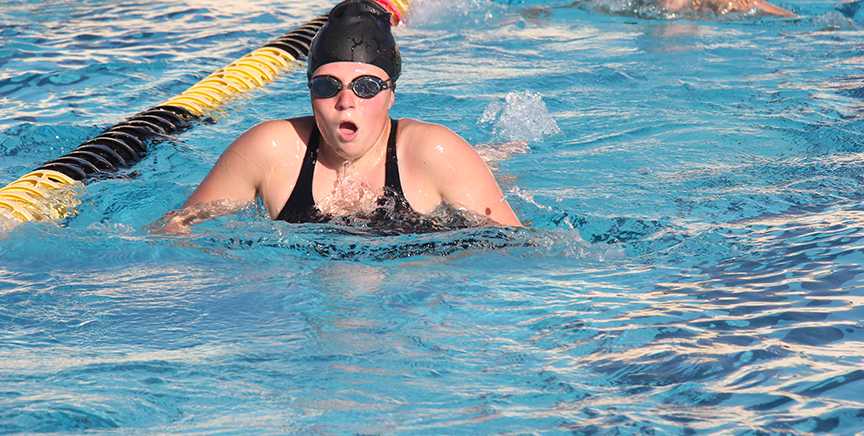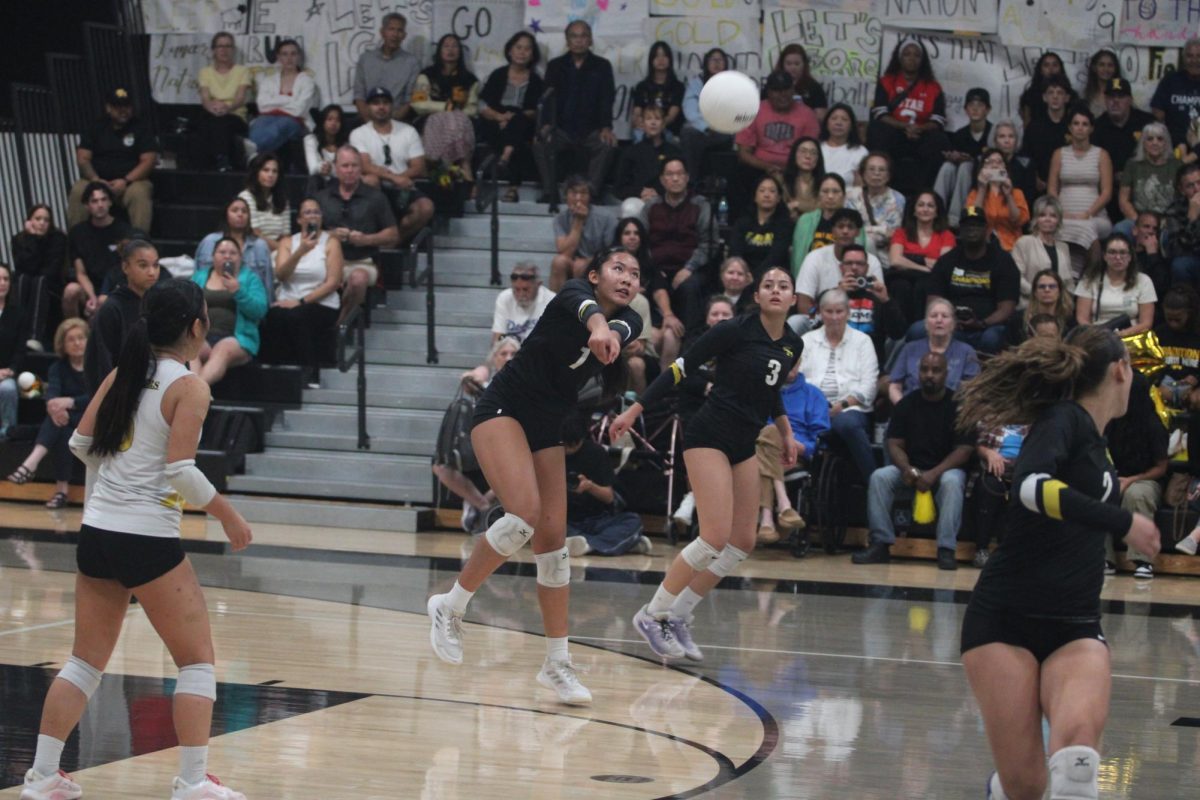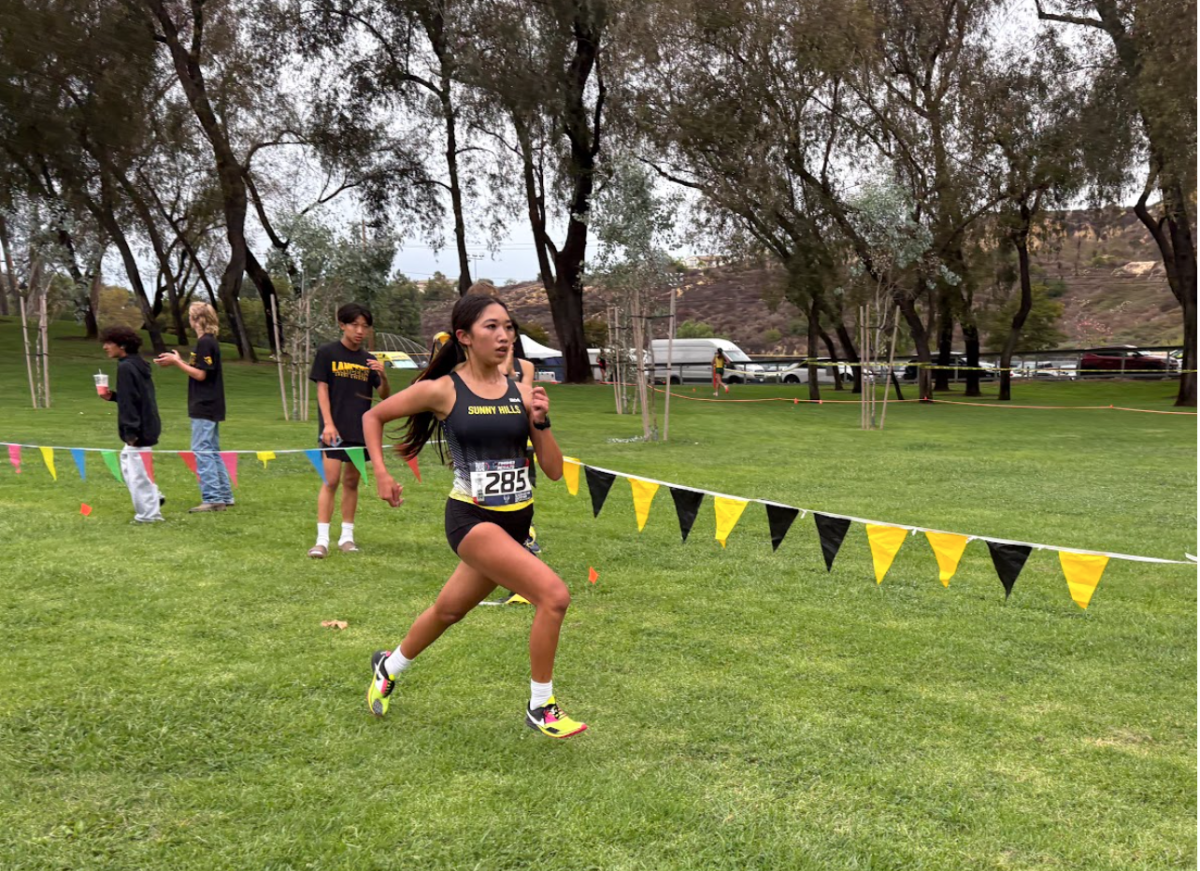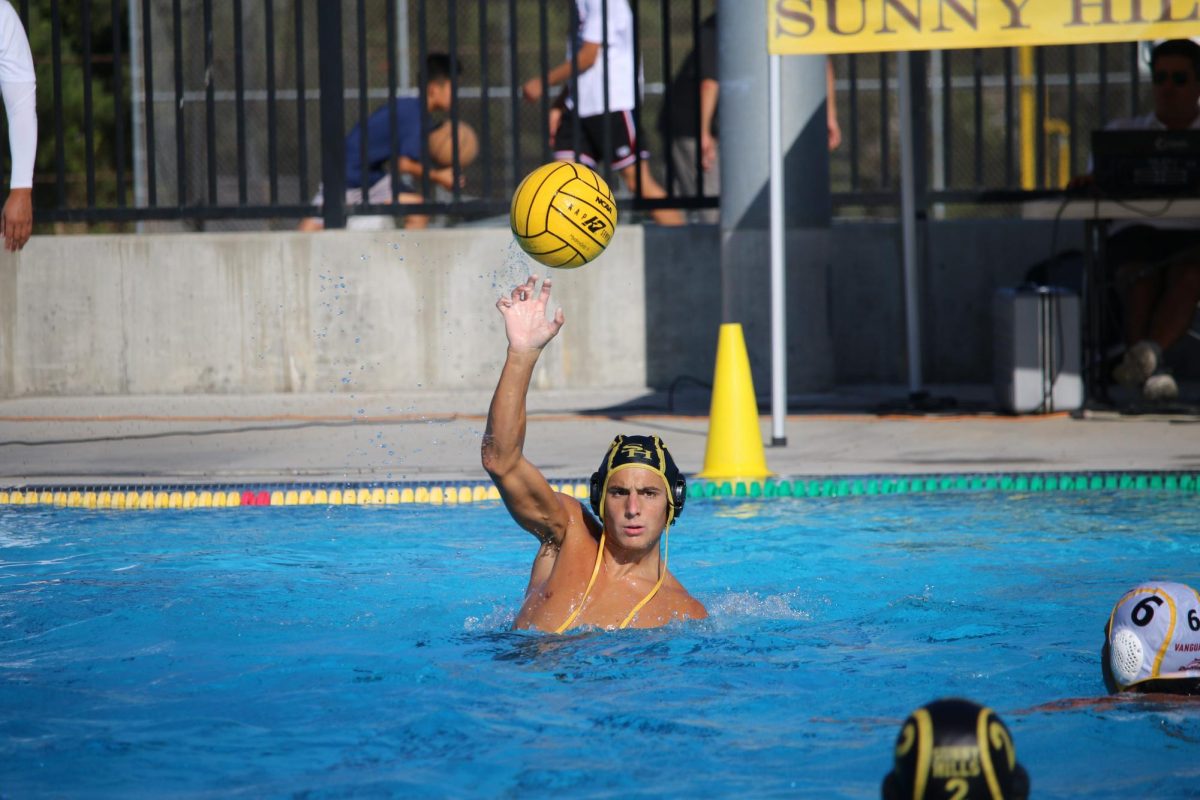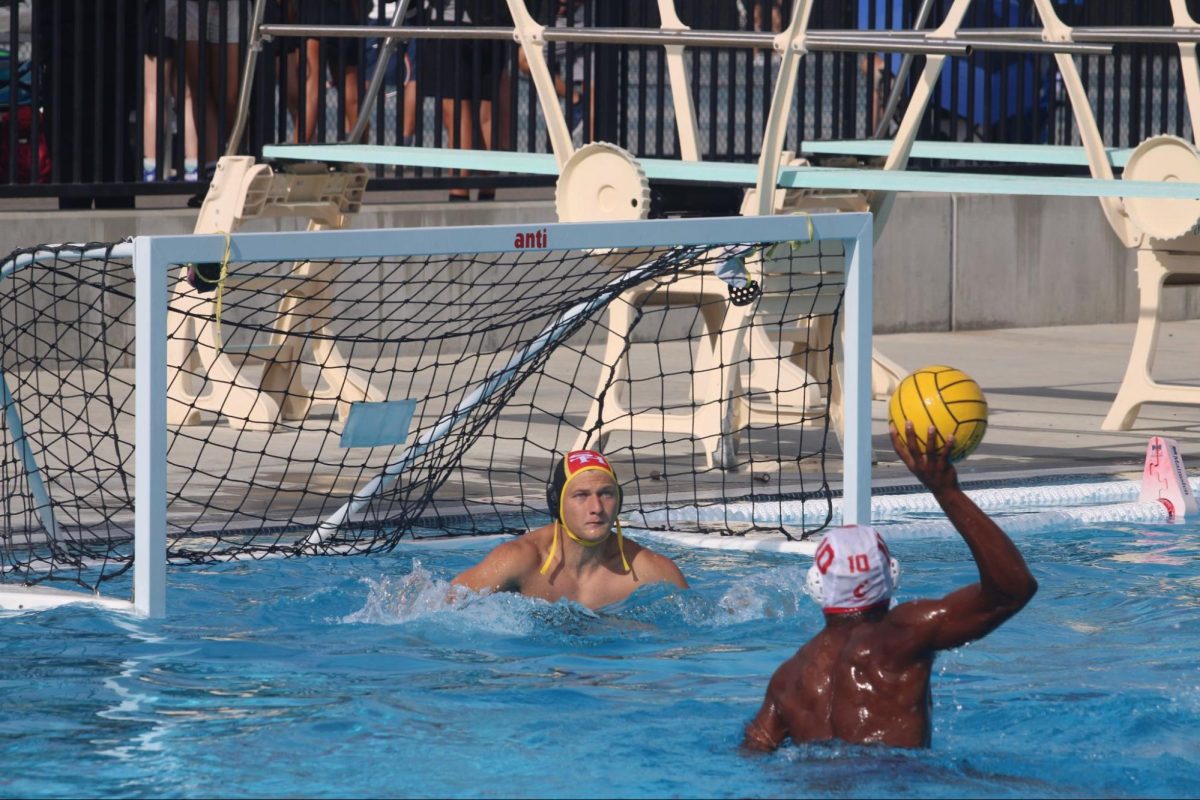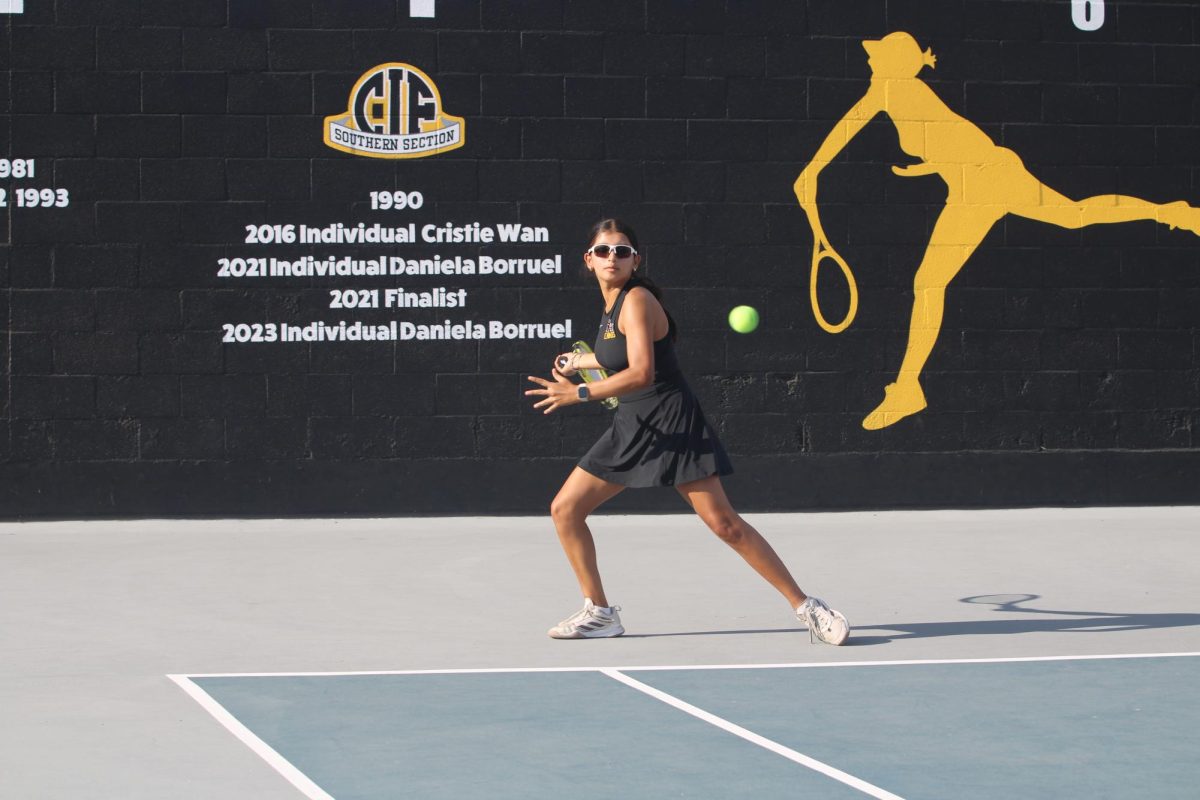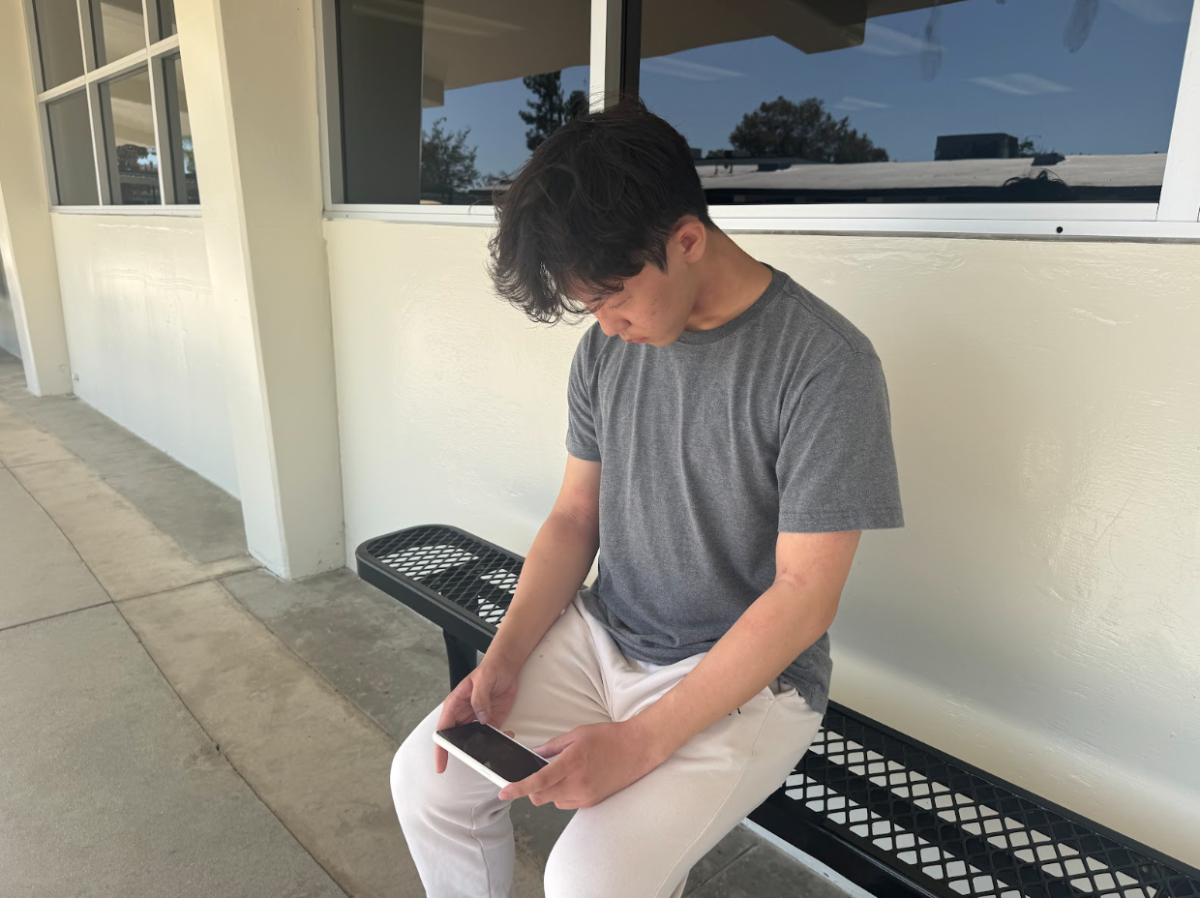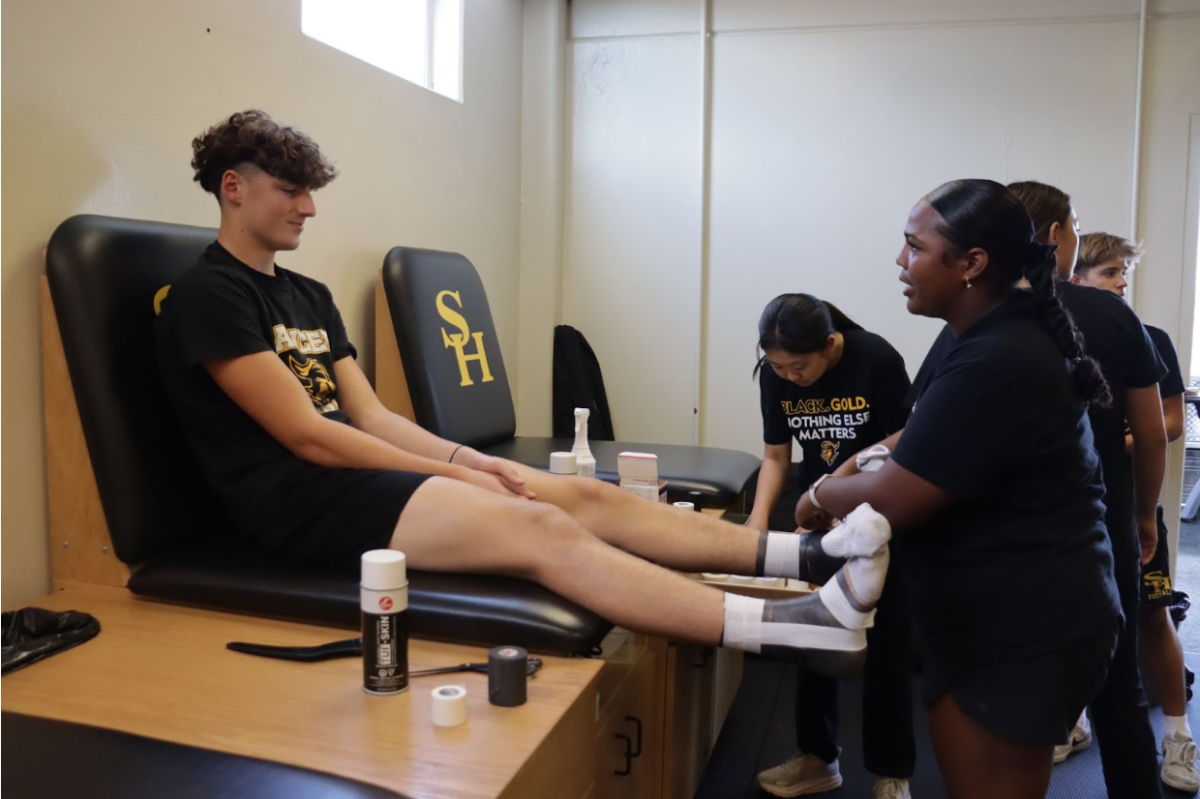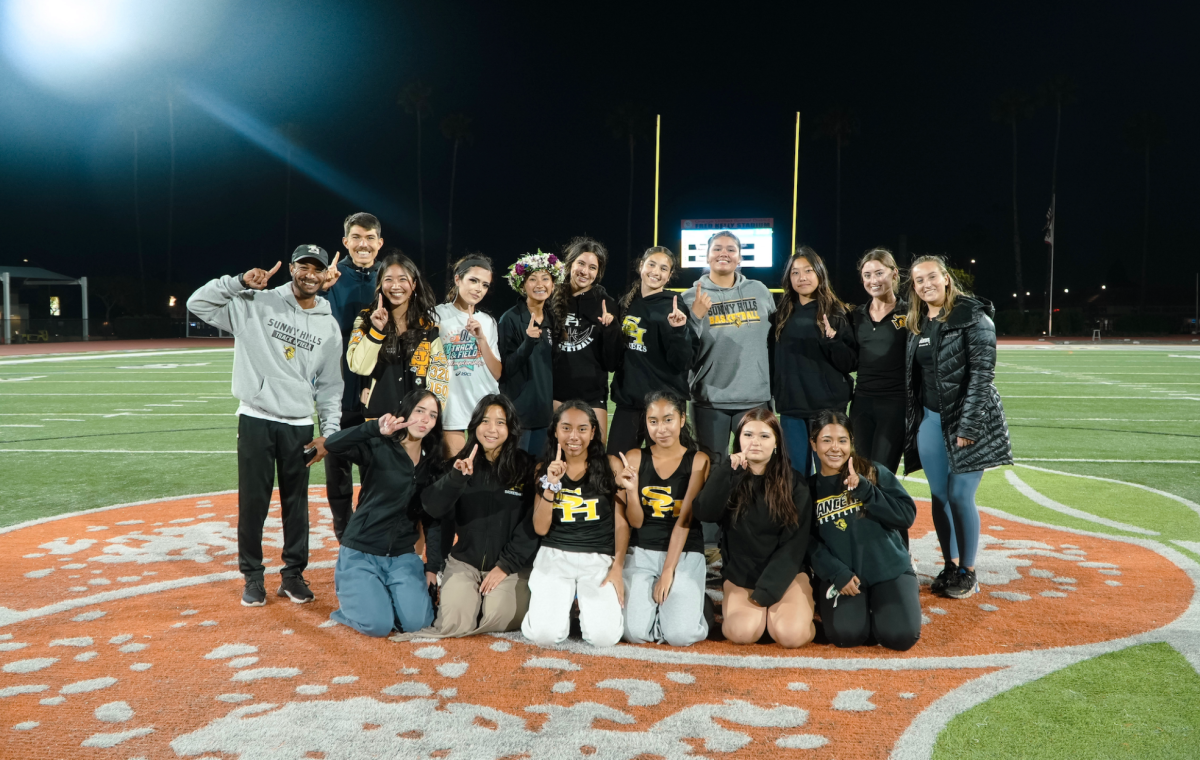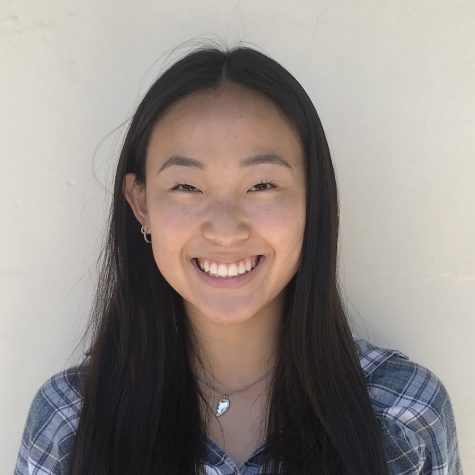This is the second in a series of articles featuring Sunny Hills students who are also athletes despite their physical or emotional disabilities.
Sophomore Rachel Green often swims the middle legs of relays like the 200 individual medley relay and the 200-meter freestyle for the Lady Lancers’ frosh/soph team last year and the junior varsity squad this season.
On the rare occasion that she competes in an individual race like the 50-meter freestyle and the 50-meter breaststroke, Green doesn’t rely on the starting sound of a horn like many other swimmers.
Instead, she relies on a flash of light that goes off the same time the referee turns on the horn to signal the start of the heat.
That’s because Green is deaf, a disability that she was born with.
“When I dive in, it’s like all my focus goes into swimming,” she said. [I make] sure I do it right [by] searching for the end wall so I can do the flip turn properly. And when I come back out of the pool, it’s like the laps that I’ve done, I did them in an instant.”
Boys and girls swim and dive head coach Keith Nighswonger calls the device that Green has to rely on an industry standard to accommodate the needs of all deaf swimmers competing in not only California Interscholastic Federation meets, but also the YMCA and USA Swimming competitions.
“Our current system is located on a tripod-mounted starting horn, which is placed on the deck next to our scoring table,” Nighswonger said.
In fact, he said, most swimmers tend to rely on the light signal rather than the sound of the horn – even though they have to look to their left when in their starting stance.
“The light system has been around for many years,” the swim and dive coach said. “Smart swimmers look at the light as well because light travels faster than sound. … [Sometimes], it can get very loud before a race, and sprinters especially tune into the light in case for some reason they can’t hear the horn.”
Green, who specializes in freestyle and breastroke, is among a few who have physical challenges at Sunny Hills and yet are willing to participate in an after school sport.
“I’ve loved swimming my whole life so I’ve always wanted to join a swim team,” she said. “It’s the one sport that [doesn’t] really require me to hear.”
THE NEW GIRL IN TOWN
Though the aquatic sport seems to come easy for Green, one major challenge at Sunny Hills has been her transition in moving from Center Township, Penn. (population 11,765 as of 2018), to Fullerton (population 139,640 as of 2018) three years ago because of her father’s new job here in Southern California.
She struggles with the many stereotypes that some of her peers typically have about deaf people, but Green has learned to overcome them by staying friendly and ignoring any judgment.
“Some people think I can’t talk, or [they] think that they shouldn’t talk to me,” she said. “All I can do is just be friendly and hope people recognize me as a normal high school student and their peers.”
Though their assumptions could be frustrating to deal with, Green said she wishes people would treat her normally instead of like an invisible person.
“Very often, if I’m with her, they will talk to me instead of Rachel,” said Green’s mother, Roby Green. “It’s an adjustment for people who have never known a deaf person before, and even then, deaf people handle communication in pretty individual ways.”
The mother said she’s been dealing with this type of treatment of her daughter throughout her daughter’s life, so it’s become normal to her child.
“When she was younger, we put a lot of effort into teaching her to communicate and read — once she had that foundation, she could develop like other kids her age,” Roby Green said. “[High school requires more] responsibility for managing her communication needs, but she likes independence.”
SPEECH THERAPY, SIGNING AND FRIENDSHIPS
Since she was 1 or 2 years old, Rachel Green said she has been attending speech therapy sessions. When she was around 3, she received a cochlear implant in her left ear to help her detect the sensation of sound by bypassing the damaged inner ear. But she sees no need to wear the implant when she swims, especially since it’s not waterproof.
She has also been fluent in American Sign Language since she was 3 or 4 years old.
“Since I [am] deaf, I’m behind [in] hearing people [in terms] of speaking,” Green said. “In speech therapy, I practice mastering intonation so I can make sentences sound like questions and so on.”
Since the sophomore’s move from a smaller East Coast town, she has continued to receive encouraging support from the friends she had made in Pennsylvania.
Green has received boxes of goodies and letters from people back in her hometown, where she hopes to return for a visit in the future.
Meanwhile, at Sunny Hills, she has been able to develop some close friendships among her peers.
Sophomores Lindsay Bridges and Kyle Jamison are astonished and inspired by their classmate’s confidence and willingness to overcome any difficulties.
“Seeing the trials she has been forced to adapt to, she could choose to take the easy road in many situations, but she does not,” Bridges said. “I’ve always admired how she does not let anything hold her back and does not want to be treated any less different than anyone else.”
Bridges met Green in July 2017 when Bridges’ family moved from Buena Park to Fullerton. Green’s family helped Bridges and her family move in, and since Bridges and her family ended up attending the same church as the Greens, the Green family invited them over for dinner.
“I knew Lindsay Bridges [from] Parks Junior High but didn’t start being friends until we met each other through church,” Green said.
Jamison met Green three years ago after he and his family moved to Fullerton.
“They were new to the area and were part of our church,” Green said. “So my dad got my family to go over and help with the move.”
Since then, the two have been study buddies.
“A lot of the time, it’s about studying for AP [Advanced Placement] Human Geography and books,” said Jamison, who is still in the process of learning sign language. “Sometimes, when she can’t understand what I’m saying, I’ll use some sign language to help her understand.”
Green said she has enjoyed her time on the swim team because it challenges her ability to improve her racing times.
Her goals are to work on her butterfly stroke so she can improve her times and to continue improving in freestyle. Although she remains a dedicated member on the JV swim team, she is also looking forward to joining the water polo squad in the 2020-2021 school year.
“Joining a swim team here [at Sunny Hills] during my freshman year was one of the best choices I’ve made,” the sophomore said.
JV boys and girls swim coach Amanda Morris views Green to be a hardworking swimmer.
“Rachel continues to improve in her stroke technique and in her speed,” Morris said.
Although this spring sports season abruptly ended early because of school closure in response to the COVID-19 pandemic, the sophomore swimmer said she appreciates the unity among her Lady Lancer swimmers.
“Even when I can’t hear them, they do come up to me afterward and congratulate me, so I know they’re cheering me on,” Green said. “It’s really great how they make that effort instead of just cheering on the sidelines.”
TO SCHOOL AND BEYOND
Although she is deaf, Green hasn’t let that affect her academic experience at Sunny Hills. Aside from any difficulties that she might have, such as sometimes having to stay after class to verify information that she might have missed when the teacher was talking during class, Green said she enjoys coming to school.
“I actually enjoy the education aspect of it,” she said. “I’ve always loved going to school and learning throughout my childhood, and I still love it despite the stress I get from the amount of homework, and I often get frequent tests and quizzes every week.”
Among all her school subjects, Green enjoys studying chemistry and AP Human Geography. She plans to pursue a career in creative writing or in journalism.
“Rachel is able to take what we learned in class and easily apply it in the real world/lab setting, [so] that shows us she has great problem solving skills, which generally means people are creative and can think outside the box,” said Green’s honors chemistry teacher, Andrew Colomac. “I can also say that with her brains, she is one of those people that will succeed at whatever she puts her mind to.”
Outside of academics and swim, Green has had the opportunity to watch last year’s school play about the story of Helen Keller, who became deaf and blind a few years after her birth from an unknown illness and was able to learn sign language from a teacher named Annie Sullivan.
“[The cast] called me a few weeks earlier to ask me questions to help them to understand the character of Helen Keller,” she said. “I loved the play and was overcome with emotion by the end scene. The play hit close to home because I could in some way relate. The cast did an excellent job.”
One goal for an extracurricular activity next school year is to attend a dance like stag or homecoming. And although she will not be able to hear the DJ’s music, it’s the company that counts.
“I’m planning to be part of the school by attending those dances as well as football games,” Green said. “I would be going with friends.”
As she works toward college and career plans, Green said she wants to remain grounded in the one key value that she has adopted on her own without any help from her parents.
“The one moral principle I have is to try to be kind to others as much as possible,” she said. “Also, being kind may be the perfect thing someone needs to brighten up their day, and I love to do that.”



